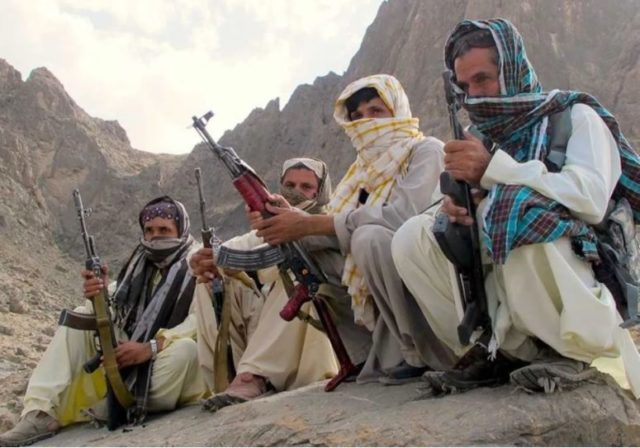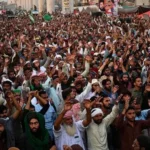The Tehrik-i-Taliban Pakistan (TTP) has released multiple statements vehemently denouncing separatist organizations, including the Fidayeen-e-Azad-e-Khurasan (FAK) and Balouch insurgent groups. These utterances have revealed the internal strife, desire for supremacy, and the un-Islamic behaviour of these groups. The TTP has faced extensive criticism for its actions, and its allegations against FAK and the Balouch militants highlight a profound corruption within separatist movements that profess to advocate for justice and autonomy, yet perpetuate disorder, violence, and self-interest.
The TTP’s criticism is on the conspicuous breach of Islamic precepts by FAK and separatist factions. Islam unambiguously affirms the sanctity of human life, especially that of non-combatants. The Quran and the Prophet Muhammad (peace be upon him) consistently underscored the ban against targeting innocents in any fight. Nevertheless, these factions persist in their assaults on civilians, common men, women, and children, disguised as acts of resistance. This flagrant breach of sacred principles undermines the faith they profess to uphold. By targeting marketplaces, busses, and community assemblies, they not only jeopardize innocent lives but also undermine the reputation of the Islamic fight, which is founded on principles of justice, kindness, and ethical superiority.
Moreover, both FAK and Balouch separatists have perverted the esteemed principles of jihad and nationalism into tools of terror. While jihad in Islam signifies the pursuit of virtue, the defence of the underprivileged, and the establishment of justice, these factions have perverted the phrase to rationalize their ambitions for power and dominance. Their view lacks foundation in Islamic jurisprudence or ethics, instead reflecting a distorted ideology aimed at fulfilling personal desires. Likewise, the essence of nationalism, which should ideally foster unity, cultural preservation, and opposition to authentic injustice, is being exploited by these forces to justify sectarianism, tribal dominance, and violent fragmentation.
A troubling element that has emerged is the internal fracturing within these groups. FAK and the Balouch militant organizations are fraught with internal discord and leadership conflicts. Instead of collaborating towards a common objective or the benefit of their asserted constituencies, they are entrenched in power conflicts, frequently directing their aggression towards one another. The internal conflicts not only undermine their political objectives but also inflict significant misery on civilians caught in the crossfire. Villages have been pillaged, local leaders murdered, and entire communities destabilized due to internecine battles driven by desire rather than philosophy.
The aggressive methods utilized by these factions highlight their contempt for Islamic principles. Islam advocates for a society founded on peace, justice, and order. However, the tactics employed by FAK and Balouch insurgents, decapitations, detonations, and abductions, are fundamentally opposed to these values. Their deeds exemplify fitnah, sedition and civil discord that fragment communities. This type of disorder is not only denounced in Islamic theology but is regarded as one of the most serious dangers to social and spiritual order. The proliferation of turbulence under the guise of religious or nationalist motives is unequivocally hypocritical.
What is most illuminating is how these activities reflect the genuine character of these power-seeking forces. In Islam, individuals who want power for personal gain and control, rather than for justice and communal welfare, are denounced. The Prophet (PBUH) cautioned against pursuing leadership for its own sake, emphasizing that genuine leadership is a trust, a duty for which one is accountable to God. FAK and separatist factions have repeatedly demonstrated that their aim is not the welfare of their constituents but the consolidation of power. Their collaborations with drug traffickers, smuggling networks, and foreign intelligence agencies undermine both their communities and their stated ideology.
The discord among FAK and other separatist entities is not attributable to ideological divergences or a sincere pursuit of justice. This is a direct result of their shared quest for supremacy and control. They espouse rhetoric of liberation and struggle, although their actions imply otherwise. Rather than fostering unity and collaboration for a righteous cause, they instigate discord, persecute dissenters, and stifle moderate perspectives. This strategy is not only politically ineffective but it constitutes a rejection of Islamic ethics and nationalist principles that prioritize solidarity and collective advancement.
The violence perpetrated by FAK and the Balouch insurgents exemplifies a stark reality: their genuine objective is not the liberation of a populace but the acquisition of unrestrained dominance. They persist in leveraging the emotional significance of faith and the historical scars of ethnic grievances to rationalize behaviours that are inherently brutal. Islamic leadership entails a profound duty, necessitating humility, fairness, and compassion. These attributes are conspicuously lacking in the behaviour of these terrorist factions.







